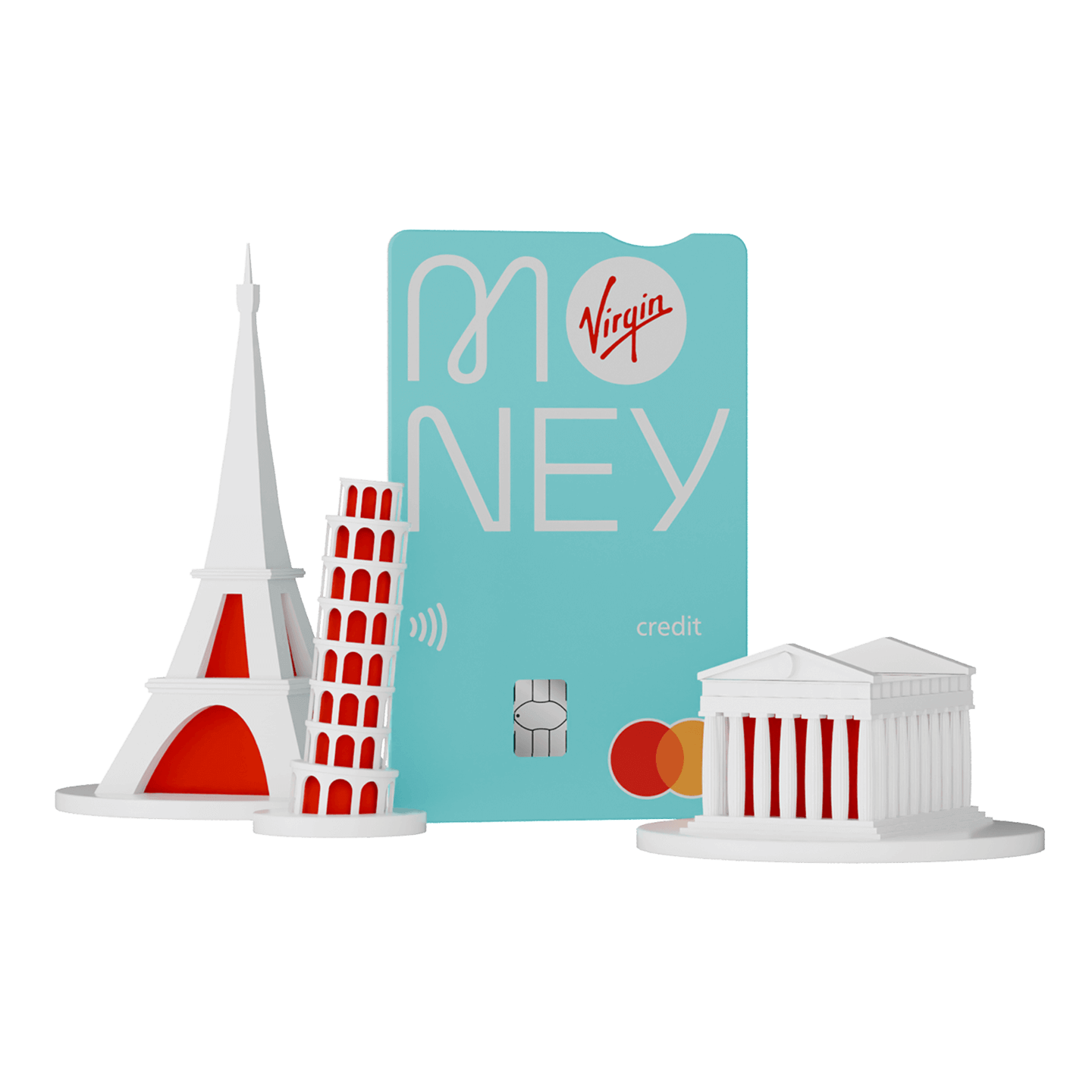Simple spending abroad
Look for a Mastercard® logo
Use your credit card in over 20 million locations wherever you see the Mastercard logo.

Pay no foreign exchange fee in Europe
You will not be charged a foreign exchange fee on purchases in the European Economy Area (EEA), made in Euros, Swedish Kroner or Romanian Lei. This includes all EU countries plus Iceland, Liechtenstein, and Norway. For the full list of countries visit the Government website.
Ready, jet-set, go.
You do not need to let us know that you're going abroad. That's one less thing for your holiday to-do list. If you do need to speak to us while abroad here's how to get in touch.
Is your credit card holiday ready?
Check your card isn't about to expire
We'll automatically send you a new card around 2 weeks before it's about to expire. If you're worried it could arrive while you're away, then you can order a replacement card.
Know your PIN
Your contactless limit is £100. In case you plan to spend more or can't use contactless, you can see your PIN in the app.
Check your details
Are your contact details up to date? It's worth a check in case we need to contact you while you're away. You can update your details in the app.
Set up Direct Debits
Take the hassle out of your holiday by setting up Direct Debits before you go so you can enjoy your trip. See how to set up Direct Debits in the app.
Cash or card?
Taking a credit card abroad gives you extra protection. If there is a problem with your purchase you may get your money back. Plus, it's more convenient and often safer than carrying a ton of cash. So don't forget to pack your credit card, and for easy access why not add it to your digital wallet.
It's worth taking some cash and other ways to pay just in case you lose your card or there's an issue. You can use your app to report your credit card lost or stolen.
Overseas fees explained
For full details of what fees you'd be charged abroad head to our Virgin Money Credit Card app. View the 'Key facts about your card' on your statement, under 'foreign usage'.
Understanding exchange rates
We use Mastercard's daily exchange rate to convert payments made in a foreign currency into Pounds. These rates are usually competitive. To see foreign exchange rates you can use Mastercard's currency converter calculator.
Top tip: It's often cheaper to pay in the local currency, as retailers tend to charge a higher conversion fee.
Foreign exchange fee
This is a currency conversion fee. It is sometimes referred to as a non-sterling transaction fee. Good news! We do not charge this fee if the transaction or withdrawal is made within the European Economic Area (EEA) in Euros, Swedish Kronor or Romanian Lei. For payments or withdrawals made outside of the EEA you'll be charged 2.99% of the transaction.
Got a Virgin Money Travel or Everyday Cashback Credit Card? You can spend worldwide with no foreign exchange fees.
| Example of a credit card purchase made outside of the EEA The exchange rate used below is an example and may change | |
|---|---|
| Transaction amount | $100 |
| Currency converted into pounds (using an example of Mastercard's exchange rate) | £75.08 |
| Foreign exchange fee (2.99%) | £2.24 |
| Final amount | £77.32 |
Cash advance fee
When you withdraw money from your credit card or buy foreign currency you'll be charged a cash advance fee. This also applies to other types of transactions. See what transactions apply.
All Virgin Money Credit Cards have a 5% cash advance fee, except our Travel Card which has a 3% fee. This fee always applies even if you're in the UK. ATM provider's may charge an additional fee for withdrawing cash, so it's something to look out for.
| Example of a credit card purchase made outside of the EEA The exchange rate used below is an example and may change | |
|---|---|
| Transaction amount | $100 |
| Currency converted into pounds (using an example of Mastercard's exchange rate) | £75.08 |
| Foreign exchange fee (2.99%) | £2.24 |
| Cash advance fee (5%) | £3.75 |
| Final amount | £81.07 |
